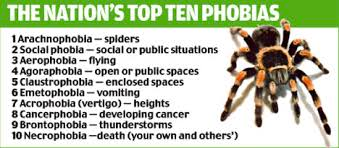Avoidance Theory VS Obsession
In class, I found an interesting contrast between two concepts we have learned about. Avoidance Theory is the avoidance or escape from anxiety-provoking stimuli resulting in the removal of unpleasant emotions. The behavior of avoidance essentially becomes a reward. These behaviors may occur in many different ways and include actions that someone may or may not do. In Chapter 9, this concept was introduced and I found it very interesting as I was able to compare it to procrastination. Obsession was another concept in Chapter 9 that differed from the Avoidance Theory. Obsession would be someone obsessing over if they turned their flat iron off so they checked it five times in a row. Obsession is a factor in Obsessive Compulsive Disorder. I have slight OCD in a way that I never have handed a college assignment in late and I obsess over deadlines. It was cool to learn about these concepts and compare/contrast them from everyday life. https://www.gracepointwellness.org/1-anxiety-...

